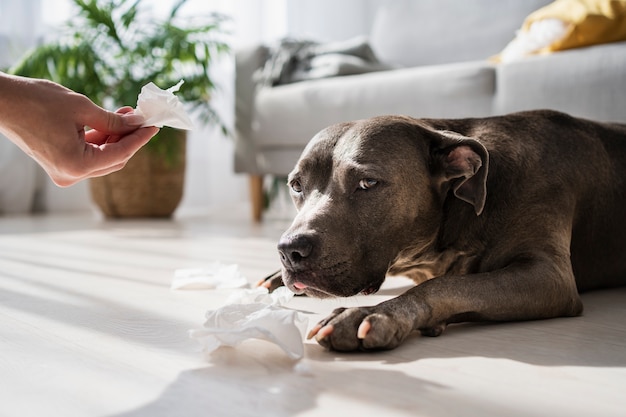What Is Cobbing in Dogs? Understanding This Behavior & How to Stop It

If you’re a devoted dog parent, chances are you’ve witnessed your pup gently nibbling on you, another dog, or even a favorite toy using its front teeth in a repetitive, almost chattering motion. This behavior, often referred to as “cobbing,” may look peculiar at first, especially to new pet owners. But what exactly is cobbing in dogs—and should you be concerned?
Cobbing is a common term used to describe a dog using its front incisors to nibble, much like the way corn is eaten off a cob, hence the name. This behavior is generally harmless and often a form of communication or expression. While it can seem odd, cobbing is typically gentle and not associated with aggression or anxiety. Still, understanding why it happens and when to intervene is important for responsible pet care.
Dogs cob for a variety of reasons, and most are rooted in social bonding. Puppies, for example, often cob each other during play as a way to interact and learn bite inhibition. When your dog nibbles on you gently, it’s often showing affection and trust. This behavior mimics the way dogs groom one another and is usually a sign that your dog sees you as part of their “pack.”
Another reason dogs cob is due to excitement or overstimulation. You might notice your dog cobbing more after coming home from a walk, greeting visitors, or during a play session. It can also be a way for dogs to explore new textures or relieve itchy skin, especially around areas they can’t easily scratch with their back legs.
However, cobbing can occasionally become excessive or problematic. If your dog begins cobbing frequently or starts nibbling forcefully enough to cause discomfort or skin irritation, it might be a sign of an underlying issue. Skin allergies, irritation, parasites, anxiety, or boredom can all manifest through repeated cobbing. In these cases, it’s essential to rule out medical causes first by scheduling a checkup with your veterinarian.
Once health concerns are ruled out, you can address cobbing behavior through training and positive reinforcement. Redirect your dog’s attention when cobbing becomes too much by offering a chew toy or interactive puzzle. This not only helps manage the behavior but also engages your dog’s mind and curbs boredom. Teaching basic commands like “leave it” or “gentle” can also help your dog learn boundaries when interacting with humans or other animals.
Consistency is key when modifying behavior. Reward your dog when they respond appropriately, and avoid scolding or punishment, as this can lead to confusion and stress. If cobbing is tied to anxiety or overstimulation, providing a calm environment and regular exercise can significantly help. For dogs struggling with impulse control or attention, working with a professional trainer or behaviorist may offer additional support.
In general, cobbing is a natural and non-threatening behavior that many dogs exhibit at some point in their lives. It’s a unique and sometimes endearing way our pets communicate with us and their environment. Still, as with any behavior, it’s important to monitor changes in frequency or intensity and seek guidance when needed.
Not sure if your dog’s cobbing is normal or a sign of something more? The team at Express Vets Marietta is here to help. Schedule a wellness visit with one of our compassionate veterinarians today and ensure your pup is healthy, happy, and understood. Visit us at 3595 Canton Rd. Suite 1AMarietta, GA 30066 or call (678) 383-6613 to book your appointment. Let’s keep your furry friend feeling their best.



















